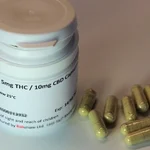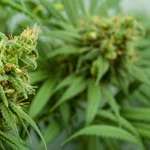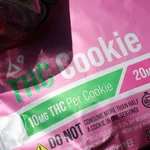Understanding the Basics of CBD Products
Before we dive into the topic of regulation, it is important to understand the basics of CBD products. CBD or cannabidiol is a non-intoxicating compound found in the cannabis plant. It is known for its therapeutic properties and has become increasingly popular in recent years. CBD can be extracted from the cannabis plant and infused into a variety of products such as oils, capsules, gummies, and creams. CBD products are often marketed as a natural remedy for various health conditions including anxiety, depression, chronic pain, and inflammation.
The Legalization of CBD
CBD has been legalized in the United States under federal law, but with some restrictions. In 2018, the Farm Bill legalized the production and sale of hemp-derived CBD products as long as they contain less than 0.3% THC, the psychoactive compound found in cannabis. However, CBD derived from marijuana is still considered illegal under federal law. Some states have legalized marijuana for medical or recreational use, but it is still illegal under federal law.
The Importance of Regulation
With the growing popularity of CBD products, it is important to ensure that they are safe and effective. Lack of regulation can lead to inconsistencies in quality and potency, as well as potential health risks. Regulation helps to establish standards for production, labeling, and testing, and ensures that consumers are getting what they pay for.
FDA Regulation of CBD Products
The Food and Drug Administration (FDA) is the primary regulatory agency for CBD products in the United States. The FDA is responsible for regulating the safety and effectiveness of food, drugs, and medical devices. CBD products fall under the category of dietary supplements and are subject to FDA regulation.
FDA Approval Process
The FDA approval process for CBD products is similar to that of other drugs and medical devices. The manufacturer must submit an application to the FDA, which includes data on safety and effectiveness. The FDA reviews the data and determines if the product is safe and effective for its intended use. If approved, the product can be marketed and sold to the public.
Current FDA Stance on CBD Products
Currently, the FDA has only approved one CBD product, Epidiolex, for the treatment of seizures associated with two rare forms of epilepsy. All other CBD products are considered unapproved drugs and are subject to FDA enforcement action. The FDA has issued warning letters to several companies for making unsubstantiated claims about the therapeutic properties of their CBD products. The FDA has also raised concerns about the safety of CBD products, including the risk of liver injury and drug interactions.
The Future of FDA Regulation
The FDA has indicated that it is working to develop a regulatory framework for CBD products. The agency has held public hearings and solicited comments from stakeholders to gather information on the safety and effectiveness of CBD products. The FDA has also established a working group to explore regulatory options for CBD products. It is unclear when the FDA will issue regulations for CBD products, but it is likely to be a lengthy process.
State Regulation of CBD Products
In addition to FDA regulation, CBD products are also subject to state regulation. Each state has its own laws and regulations regarding the production, sale, and use of CBD products. Some states have legalized marijuana for medical or recreational use, while others have only legalized CBD products derived from hemp. States may also have their own labeling and testing requirements for CBD products.
Differences in State Regulations
The regulations for CBD products can vary widely from state to state. For example, in California, CBD products are legal but are subject to testing and labeling requirements. In Texas, CBD products are only legal for certain medical conditions and are subject to strict labeling requirements. In Kentucky, CBD products are legal but are subject to testing and labeling requirements.
Challenges of State Regulation
The lack of uniformity in state regulations can make it difficult for CBD manufacturers to comply with all the requirements. It can also create confusion for consumers who may not be aware of the differences in regulations between states. Additionally, the legality of CBD products can be uncertain in states where the laws are unclear or where enforcement is lax.
Industry Self-Regulation
In addition to FDA and state regulation, the CBD industry has also implemented self-regulation measures. The industry has established trade associations and certification programs to promote quality and safety standards for CBD products.
The U.S. Hemp Authority Certification Program
The U.S. Hemp Authority is a certification program that sets standards for hemp growers and processors. The program requires participants to adhere to strict standards for cultivation, processing, and testing. Products that meet the standards can display the U.S. Hemp Authority Certified Seal, which provides assurance to consumers that the product is safe and of high quality.
The Hemp Industries Association
The Hemp Industries Association is a trade association that represents hemp companies and promotes the use of hemp for industrial and commercial products. The association has established guidelines for the production and sale of hemp products, including CBD products.
Challenges of Self-Regulation
While self-regulation can be a useful tool for promoting quality and safety standards, it is not a substitute for government regulation. Self-regulation relies on the voluntary participation of companies, and there is no guarantee that all companies will follow the standards. Additionally, self-regulation does not provide the same level of oversight and enforcement as government regulation.
Conclusion
CBD products are a rapidly growing industry, but their regulation is still in its early stages. The FDA and state governments are working to establish regulations for CBD products, but the process is complex and time-consuming. In the meantime, consumers should be cautious when purchasing CBD products and should look for products that have been tested and certified by reputable organizations. The CBD industry can also play a role in promoting quality and safety standards through self-regulation measures. Overall, regulation is essential to ensure that CBD products are safe and effective for consumers.












